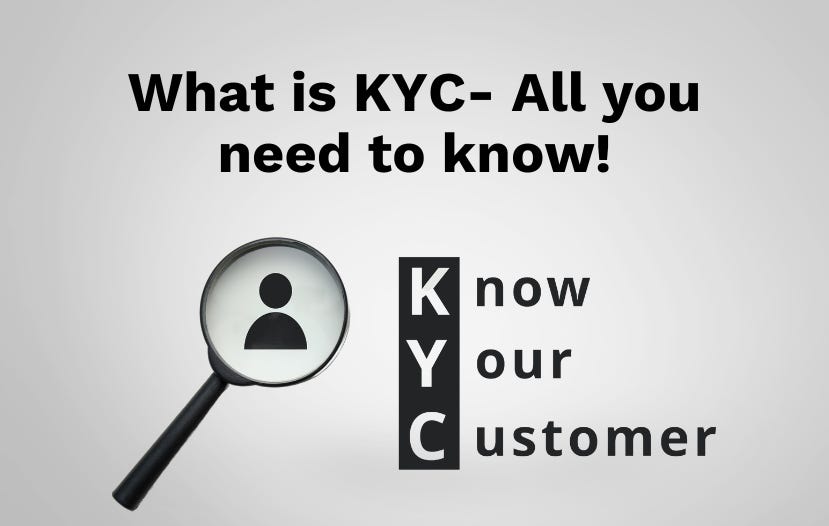Here’s What You Need to Know


Wait! Have you also been constantly annoyed by all these UPI apps and investment platforms asking you to verify your KYC? Have you also repeatedly ignored it because you did not know why is it needed or what exactly is it? Is it a scam? Is someone trying to steal from you!? Well, keep reading to know more as we burst your myths about KYC and why it is important!
WHAT IS KYC?
KYC stands for ‘Know Your Customer’, a due diligence process that allows banks and other financial institutions to establish a customer’s identity, and link their identity to financial offerings or platforms they are utilizing. But why is this needed?
Under the Prevention of Money Laundering Act of 2002, KYC verification was made mandatory, making it illegal for any individual or institution to carry out financial offerings without KYC verification. It was meant to safeguard entities from:
Money laundering
Terrorism funding
Identity theft
ADVANTAGES OF KYC
Protects financial institutions and controls unlawful activities.
With KYC, banks have the ability to confirm an entity's legal status, which includes comparing operating addresses with customers' addresses and confirming the names of their beneficial owners and authorized signatories.
The KYC procedure also asks about the customer's line of work and line of business, all of which are crucial for confirming an individual or company's legitimacy.
NOTE
RBI mandates that any individual conducting financial transactions needs to have their identity verified. To meet the KYC requirements, a customer is required to provide proof of their identity and address, to the bank or other financial institutions, and only then they may be allowed to proceed with the transaction. Examples of KYC documents include Aadhaar Card, Passport, and Driver’s License.
Failure to meet KYC requirements can result in steep fines and penalties.
Now that you know the importance of KYC, here are two ways you can immediately get it done!
Types of KYC
Processes for KYC verification fall into two categories. Both are equally good; the decision to choose one over the other comes down to personal preference. Here are both of them:
Aadhar-based KYC: For individuals with a broadband or internet connection, this verification process is very convenient as it can be completed online. The client is required to provide a scanned copy of their Aadhar card.
SEBI, the regulatory body, has provided guidance to restrict investments to Rs 50,000 per annum per Mutual Fund for OTP-based eKYC.
In-person KYC: If a consumer chooses to invest more than 50000 in mutual funds each year, they will be required to complete an offline, in-person KYC. The user has two options for doing this: either the KYC registration agency sending an executive to their home or place of business to conduct the verification or visiting a KYC kiosk and utilizing Aadhar biometrics to authenticate their identity.
BOTTOM LINE
All in all, KYC bars and prevents illegal activities, money laundering, and much more. It may also prove to be beneficial in cases where fraudulent transactions have taken place. KYC is a crucial process that is beneficial for everyone, so do not fear it and get your KYC done today.

